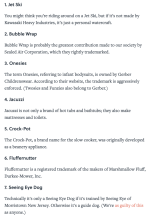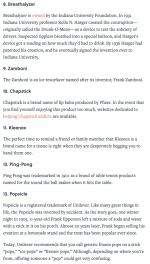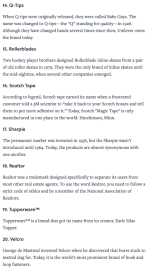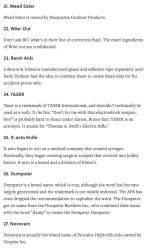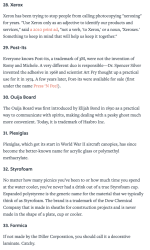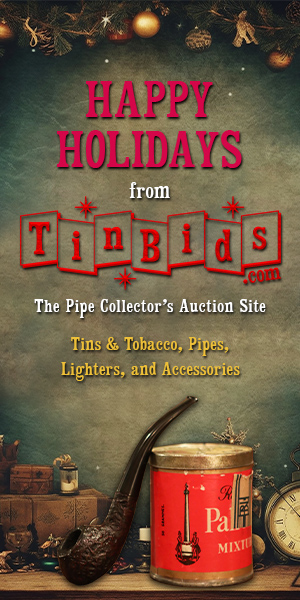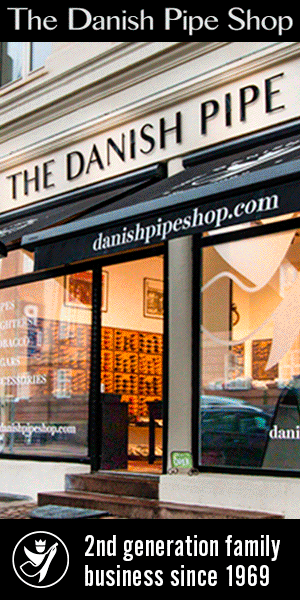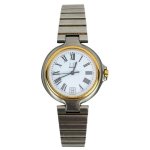I think the Alfred's heirs lacked the interest in leather goods and sold that part of the brand to the Swiss company for moneys, only moneys ... Lots of moneys. Money is great motivator.The Swiss owned Mont Blanc and other luxury brands. Most likely they understood marketing such better that the surviving Dunhills.
I'd almost bet that the remaining Dunhills are in the business simply to stay busy, akin the gentleman farmers. They possess a noted brand and can malke some pin money selling a well known brand of historical significance.
The history is far, far, more complicated than that. Here's part 1 of 2 of a long 2005 post from alt.pipes.smokers by pipeman, who asked and got an answer from Howard Smith of Alfred Dunhill Manufacturing Limited (
Who owns what with Dunhill - https://groups.google.com/g/alt.smokers.pipes/c/ZovPB4HkQj4/m/-yGr7qsLCQAJ):
When this whole regarding Dunhill tobacco blew up a week ago I decided
to do some research. It seams there are three Dunhills: the tobacco
business (btw Dunhill cigarettes in the U.S. are owned by Phillip
Morris - unless they've sold it); the pipe business; the stores and
watches and assorted 'luxury goods'. I made inquires to B.A.T. and the
pipe making enitity. I recieved a reply from them which I will post
here in its entirety. Before I do I would just like to make clear that
Dunhill tobacco was merged with B.A.T., a company, which by its
original charter was precluded from both the U.S. and U.K. by breakup
of the Duke trust. I'm not sure how that stands now but B.A.T. bought
Brown & Williamson, merged that with lane, and then merged that with
Reynolds. B.A.T. own 41% of Reynolds (and Lane), and the company that
"owns" Dunhill (it was a merger) owns 18% of B.A.T..
Dear Mr Lieberman,
Thank you for your enquiry that has been received at Alfred Dunhill
Manufacturing Limited.
I will try and explain a very complex situation to you as simply as
possible by using history. I hope this should clarify the situation.
You do also have to know the history of all those companies involved
like Carreras, Rothmans and Richemont to see how they are interlinked.
In the following details:
Alfred Dunhill refers to the person
ADL (Alfred Dunhill Limited) refers to the Company
AHD is Alfred Henry Dunhill (Alfred Dunhill's son)
MD is Mary Dunhill (Alfred Dunhill's daughter)
Starting in 1893 Alfred Dunhill takes over the running of his fathers'
business supplying items for horses - blankets leather harnessses etc.
With the introduction of the motor car, of which Alfred owned one of
the first ones brought into England, expands his business into Dunhill
Motorities to supply all the accessories for the car, the driver and
passengers.
1904 - Receives patent for windshield pipe.
1905 - Alfred Dunhill's Patent Development Company established
1907 - Alfred Dunhill opens a tobacconist shop at 31a Duke Street St
James's
1910 - 28 Duke Street acquired and pipe making commences
1912 - ADL became Alfred Dunhill (1912) Limited - AHD joins business
and pipe factory moves to Mason's Yard.
1913 - Alfred Dunhill(1912) Limited became Dunhill's Limited
1916 - Notting Hill Gate premises acquired for office and pipe making
1921 - Alfred Dunhill of London Inc formed in New York
1922 - Parker Pipe Company Limited formed - subsiduary of ADL
1923 - ADL formed
1929 - AD retires and son AHD succeeds as chairman
1930 - Leather factory opens in Notting Hill Gate
1936 - Large shareholding in Hardcastle Pipes Ltd purchased with a
factory in Walthamstow
1943 - Mary Dunhill appointed Director of ADL
1948 - Richard Dunhill joins ADL
1959 - Alfred Dunhill dies
1961 - AHD retires and Mary Dunhill succeeds as chairman - Richard
Dunhill becomes director
Alfred Dunhill Tobacco Ltd founded and new fatory acquired in Plaistow
East London. In 1966 named changed to Dunhill Tobacco Limited
Incidental Tobacco History relavent to the story:
The Dunhill London cigarette was made for Dunhill's by George Dobie &
Son of Paisly, Yorkshire. The same brand was made by C E McConnel Ltd
which traded at first as Gill Brothers from 1940 onwards. London
cigarette was superseded by the Dunhill White Spot cigarette in 1952,
manufactured by Carreras Limited. In 1965 the Dunhill Virginia Filter
was launched and in 1966 Dunhill International. In 1953 John Sinclair
had acquired a controlling interest in Murray,Son & Co (Belfast)
1965 (March) AHD and MD transfer 50% of ADL to John Sinclair Limited a
subsidiary of Carreras Limited and Robert C Wickenden, as nominees of
Carreras.(Carreras Ltd, dates back to 1788, had become associated with
Rothmans in 1958) The share transfer follows great concerns over future
death duties and the effect on the family control of the business.
1965 (July) Robert Wickenden purchases a further 500 shares,as nominee
for Carreras bringing them control.
1967 Parker Pipes and Hardcastle merged
1972 Carreras renamed Rothmans International
1975 Mary Dunhill retires and Richard Dunhill her nephew succeeds
1976 ADL acquires Lane Limited (USA). Lane had bought Charatan Pipes in
1962 and in 1965, through the Charatan Company, bought Ben Wade.
1977 Dunhill Pipes Limited formed - Montblanc pen company acquired by
ADL
1981 Tobacco manufacture moved from London to Murrays Belfast (Dunhill
Tobacco Ltd sold)
1982 Dunhill Holdings PLC acquired ADL under scheme of arrangement.
Rothmans International controlled new holding company. Pipe manufacture
transfers to Walthamstow
1985 Chloe group (ladies fashion) bought by Dunhill Holdings PLC. as
well as Dunhill Tailored Clothes Inc New York purchased.
1987 Lane Limited was sold to Rothmans International
1988 Mary Dunhill dies
1989 Richard Dunhill appointed as Chairman
1991 Hackett menswear acquired
1992 Karl Lagerfeld (fashion designer) business purchased
1993 Dunhill Holdings PLC name changed to Vendome under the following
reorganisation
Rothmans International Group was formed in october 1993 through
reorganisation of the tobacco and luxury goods businesses of Richmont,
Rothmans and Dunhill into two new listed groups, Rothmans International
and Vendome. Rothmans International comprises all of Rothmans tobacco
businesses and certain tobacco trade marks previously owned by Dunhill
and Richmont. International cigarette brands owned and controlled by
the group include Rothmans, Peter Stuyvesant, Dunhill, Cravan 'A' and
Golden American. Under its constitution Rothmans International has a
dual holding company stucture, in which the shareholders hold units
comprising twinned shares in Rothmans International Plc, a British
company, and Rothmans International NV a Dutch company. Rothmans
International Plc owns the UK-based businesses and Rothmans
International NV owns the non-UK based businesses. The composition of
the boards of both companies is identical. Following the
reorganisation, Rothmans Tobacco (Holdings) SA, an indirectly wholly
owned Richmont subsidiary, owns 61% of the Rothmans International
units, with the balance being held by former public shareholders of
Rothmans and Dunhill.
1998 Richemont byout of Vendome minority shareholders

